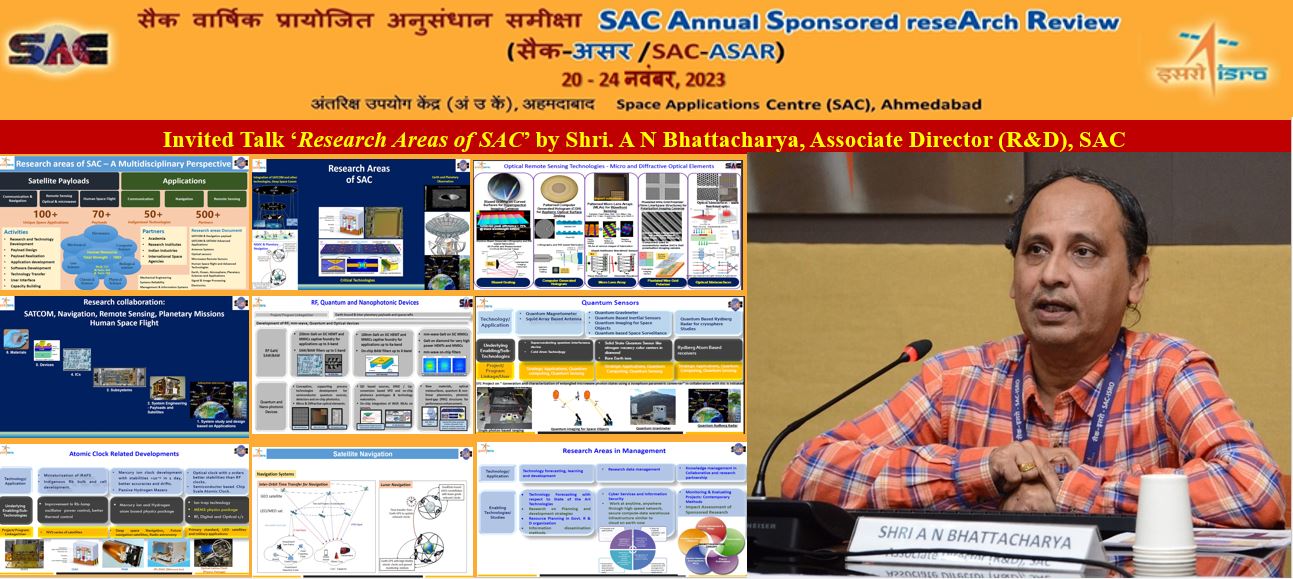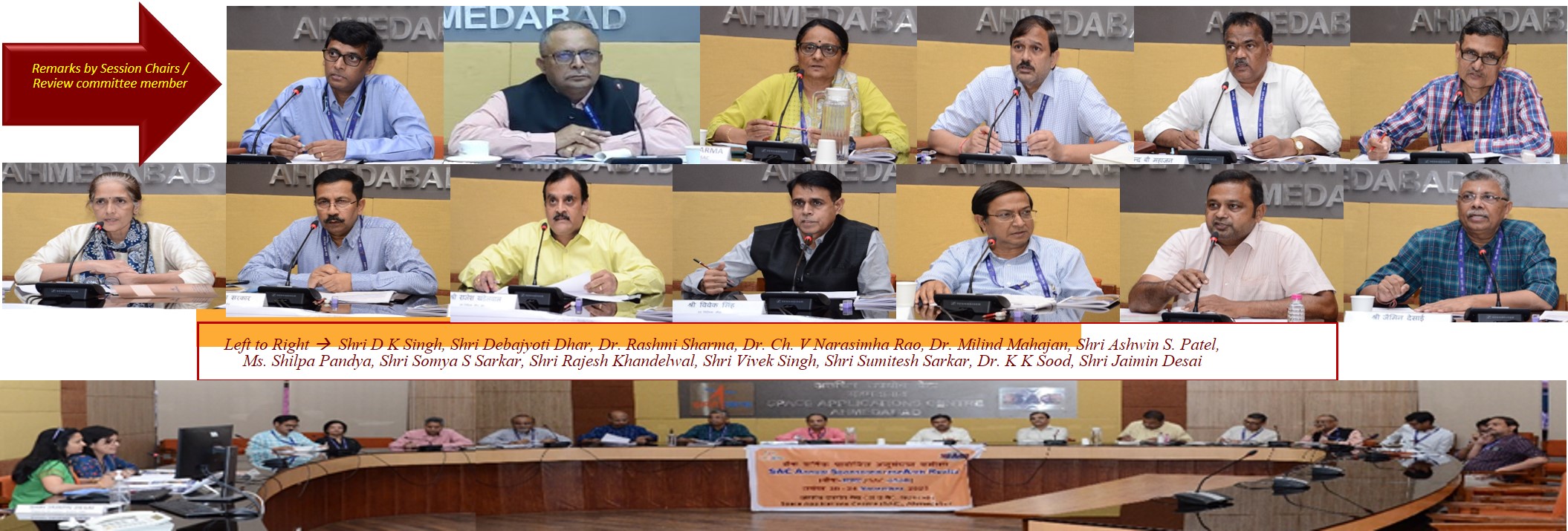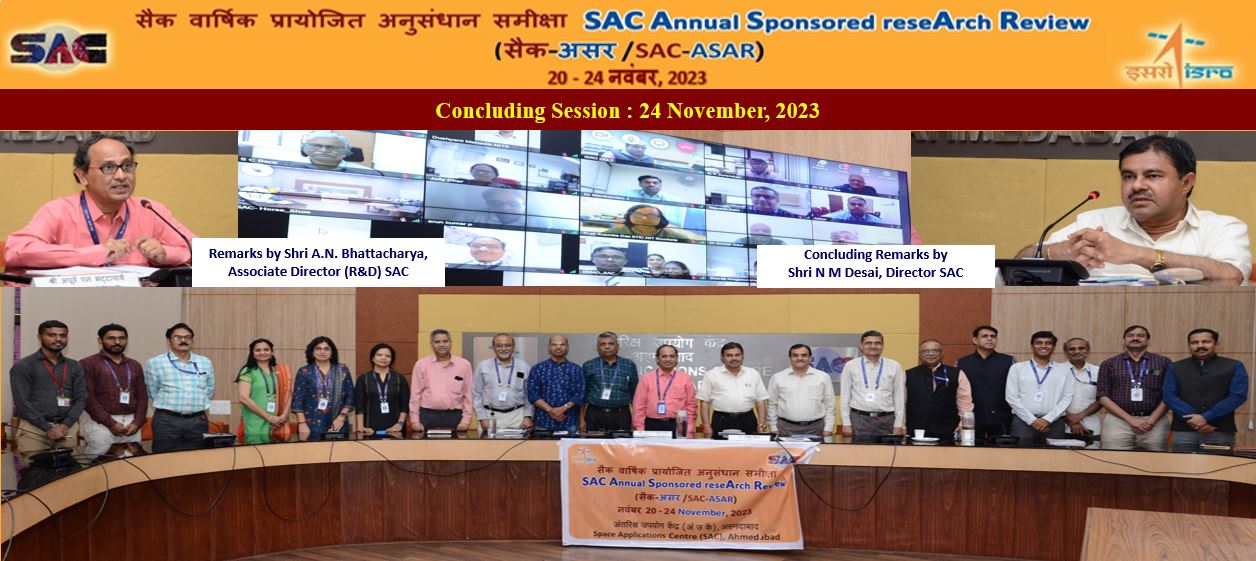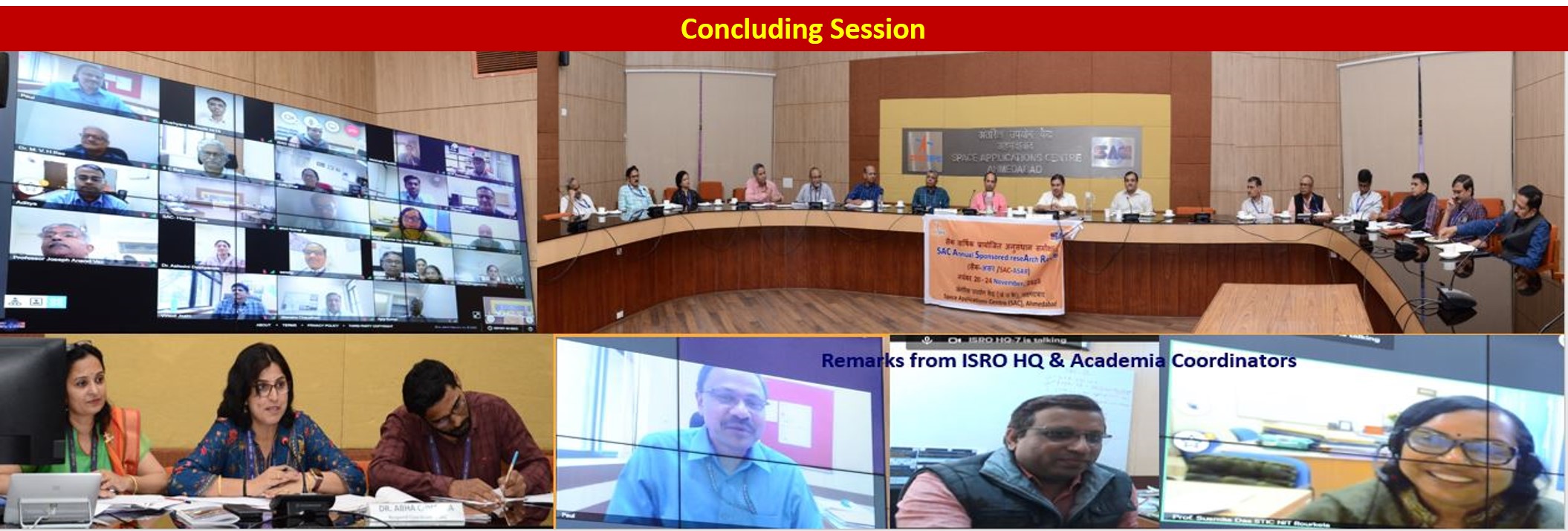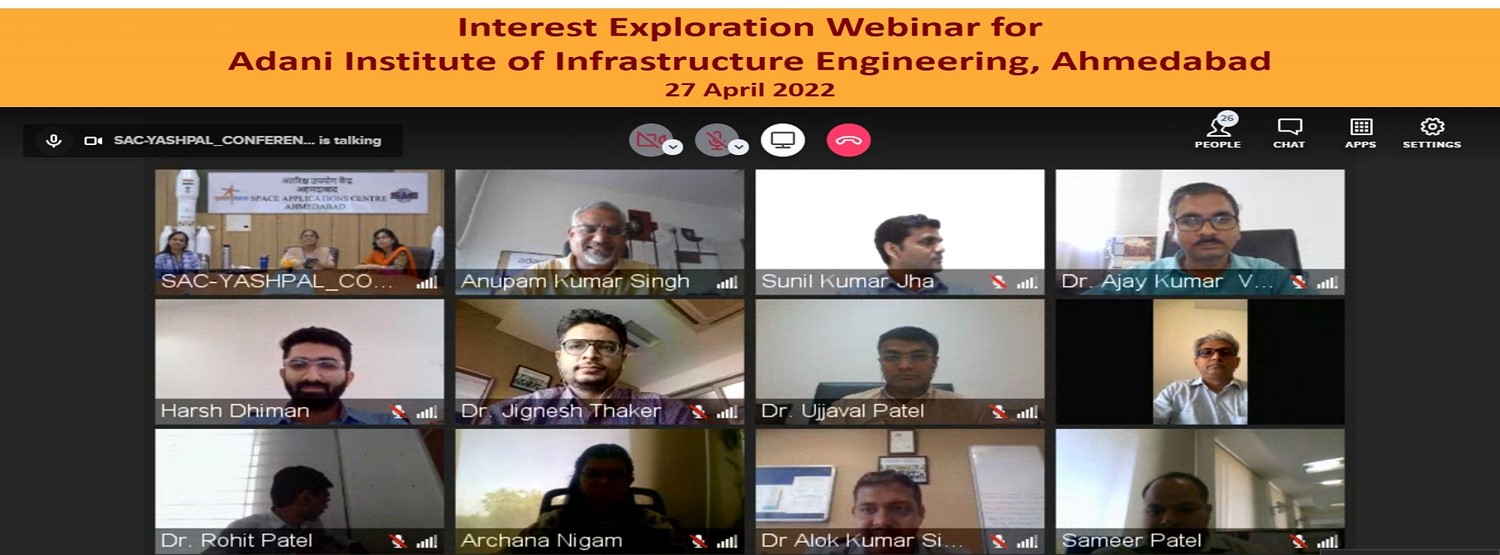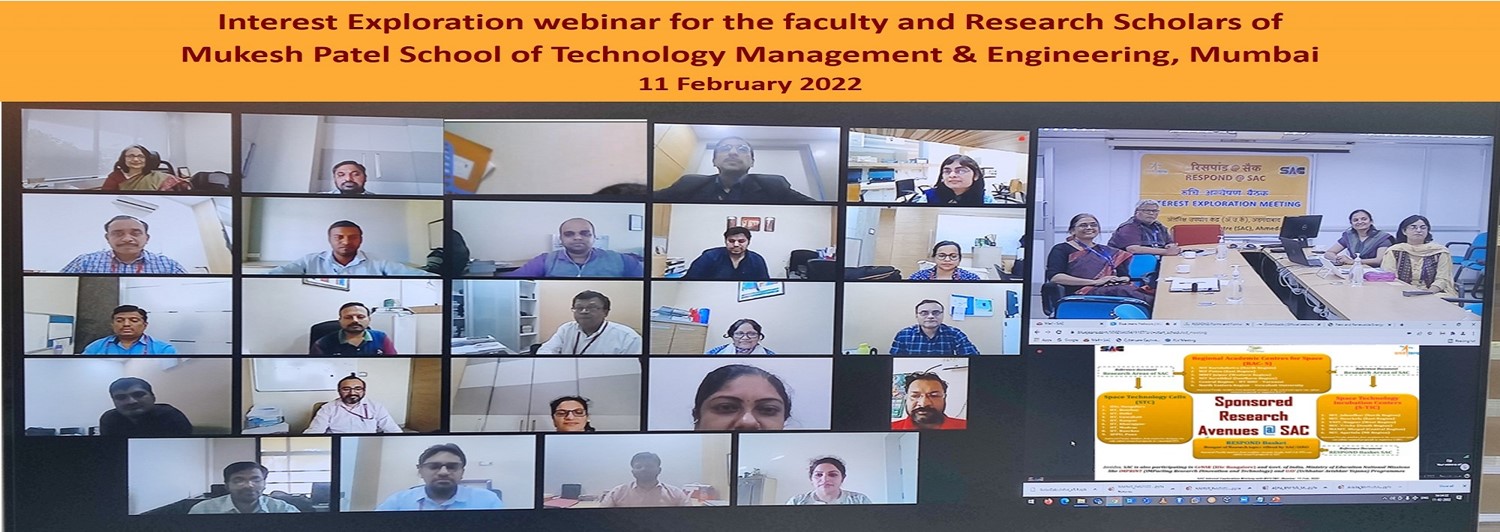Sponsored Research (RESPOND) and Academic Interface (AI) at SAC
ISRO started the RESPOND (Sponsored Research) programme in the 1970s, with the objective of encouraging academia to participate and contribute in various Space related research activities. Under RESPOND, projects are taken up by Universities/Academic Institutions in the areas of relevance to Space Programme. ISRO has evolved the RESPOND programme through which necessary financial and technical support is provided to academia in India for conducting research and development activities related to Space Science, Space Technology and Space Applications. This is the flagship programme of ISRO to promote the extra-mural research in emerging areas of Space at Academia. To enable the faculty of Universities/ Institutes to prepare suitable proposals of relevance to space programme, a detailed list of R&D areas/sub areas /topics have been evolved as per major programmes of ISRO, by the various centres of ISRO and published annually. RESPOND programme is mutually beneficial to ISRO and Academia, wherein the rich talent of Academia/ faculty is being harnessed to support the Nation's Space programme.
The main objective of the RESPOND Programme is to establish strong links with premiere academic institutions in the country to carry out research and developmental projects which are of relevance to Space and derive useful outputs of such R&D to support ISRO programmes. RESPOND programme aims to enhance academic base, generate quality human resources and infrastructure at the academic institutes to support the Indian Space programme. Under RESPOND, projects in the advanced areas of relevance to Space programme are encouraged to be taken up by premiere universities/academic institutions. ISRO helps these institutions to establish the necessary technical facilities and also provide fellowships to researchers to work on cutting edge research topics.
Apart from this, ISRO has also set up Space Technology Cells (STC) at premier institutions like Indian Institutes of Technology (IITs) - Bombay, Kanpur, Kharagpur, Madras, Roorkee, Guwahati and Delhi, Indian Institute of Science (IISc), Bengaluru and Joint Research Programme with Savitribai Phule Pune University (SPPU, Pune) to carry out thematic research activities in the areas of Space technology and applications, in support of the space efforts.
Regional Academic Centre for Space (RAC-S) is a regional level new initiative to pursue advanced research in the areas of relevance to the future technological and programmatic needs of the Indian Space Programme and act as a facilitator for the promotion of space technology activities in the region.
To attract and nurture the young academia with innovative ideas / research aptitude for carrying out research and developing the Academia - Industry ecosystem for Space Technology, ISRO has set-up a Space Technology Incubation Centre in 6 regions of our Country viz. Central, East, North, North-East, South and West.
The research studies conducted by the STC/ Academia are expected to be directed towards some of the future Space activities, which would be a good supplement to various missions undertaken by ISRO.
For details please visit https://www.isro.gov.in/academia.html
The main objective of the RESPOND Programme is to establish strong links with premiere academic institutions in the country to carry out research and developmental projects which are of relevance to Space and derive useful outputs of such R&D to support ISRO programmes. RESPOND programme aims to enhance academic base, generate quality human resources and infrastructure at the academic institutes to support the Indian Space programme. Under RESPOND, projects in the advanced areas of relevance to Space programme are encouraged to be taken up by premiere universities/academic institutions. ISRO helps these institutions to establish the necessary technical facilities and also provide fellowships to researchers to work on cutting edge research topics.
Apart from this, ISRO has also set up Space Technology Cells (STC) at premier institutions like Indian Institutes of Technology (IITs) - Bombay, Kanpur, Kharagpur, Madras, Roorkee, Guwahati and Delhi, Indian Institute of Science (IISc), Bengaluru and Joint Research Programme with Savitribai Phule Pune University (SPPU, Pune) to carry out thematic research activities in the areas of Space technology and applications, in support of the space efforts.
Regional Academic Centre for Space (RAC-S) is a regional level new initiative to pursue advanced research in the areas of relevance to the future technological and programmatic needs of the Indian Space Programme and act as a facilitator for the promotion of space technology activities in the region.
To attract and nurture the young academia with innovative ideas / research aptitude for carrying out research and developing the Academia - Industry ecosystem for Space Technology, ISRO has set-up a Space Technology Incubation Centre in 6 regions of our Country viz. Central, East, North, North-East, South and West.
The research studies conducted by the STC/ Academia are expected to be directed towards some of the future Space activities, which would be a good supplement to various missions undertaken by ISRO.
Recognising the need for a broader academic interface with institutions across the country, a series of capacity building initiatives have been taken up to further strengthen the involvement of academia for ISRO programmes. These initiatives includes Space Technology Cells [STC] , Regional Academic Centres for Space [RAC-S] and Space Technology Incubation Centres [S-TICs].
For details please visit https://www.isro.gov.in/academia.html





